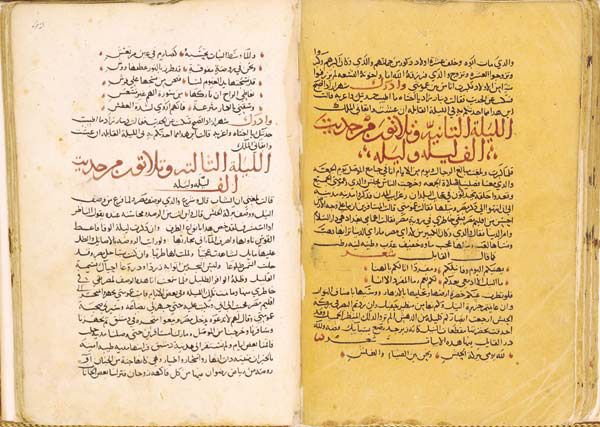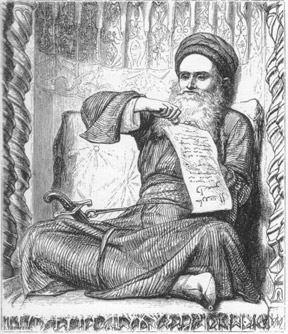


Essay 2: Click to see the topic
Rough Draft Due: Tuesday, September 21, in class
Final Draft Due: Thursday, September
30

As in many of these stories, the disaster that falls on the merchant in "The Merchant and the Demon" is due more to chance than to a moral flaw (other than littering) on his part. What related hypotheses about the culture could we begin testing at this point?
Which is more important to King Shahrayar, the woman or the stories? Support your position with evidence from the text.
Even demons respond to stories, it seems. What does the Demon have in common with Shahrayar? Is Shahrazad being very clever in her storytelling? Is there a double meaning here?
What do both the first and second old men's stories suggest about family relationships?
What common moral ground might the second old man find with the Christian New Testament teachings? What about his story doesn't fit there?
"The Story of the Fisherman and the Demon" starts a new story cycle, about a fisherman so unlucky that he almost catches his death trying to earn a living. In his four casts of the net, what does he catch?
What logic did the demon use in deciding to kill his rescuer? How does the fisherman use his reason to overcome the demon?
Why does the fisherman tell the
tale of Yunan and Duban to the demon? What moral lesson does it teach?
What piece of advice from The Prince might have been useful to King Yunan when dealing with his vizier?
Yunan tells his vizier "The Tale of the Husband and the Parrot"; what did he fail to learn from his own tale?
The vizier tells "The Tale of the King's Son and the She-Ghoul." How does it help him persuade the King to execute Duban?
At what point does storytelling lose its appeal for the Sage Duban? How does he make his point instead?
What's the lesson for the demon? How does he respond? What's double-edged about his gift to the fisherman?
Notice how things often come in threes in fairy tales. What happens to the three deliveries of rainbow fish?
What does the King find when he enters the palace in the land of the rainbow fishes? What has the young man's wife stolen from him by placing him under enchantment?
How does the King trick the young man's wife?
Who are the fish? What does this story suggest about religious tolerance in this culture? Is this unusual in ancient cultures?
Who is rewarded at the end of this tale? How? What's the moral of the story of the fisherman and the demon?
What evidence do we have so far that stories are not just entertainments, but serious attempts to manipulate reality?
Return to Daily Readings and Assignments Page
Return to Home Page